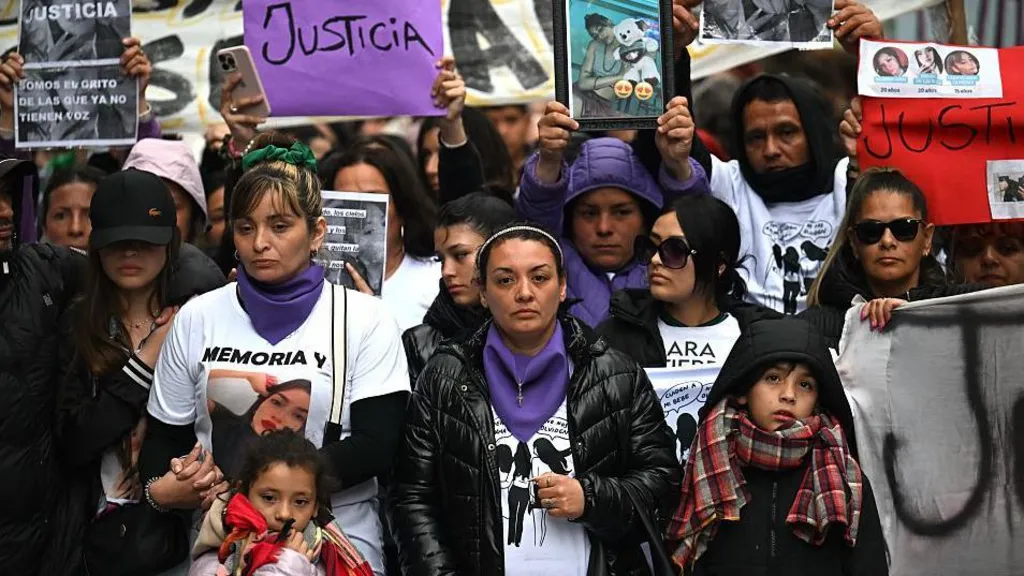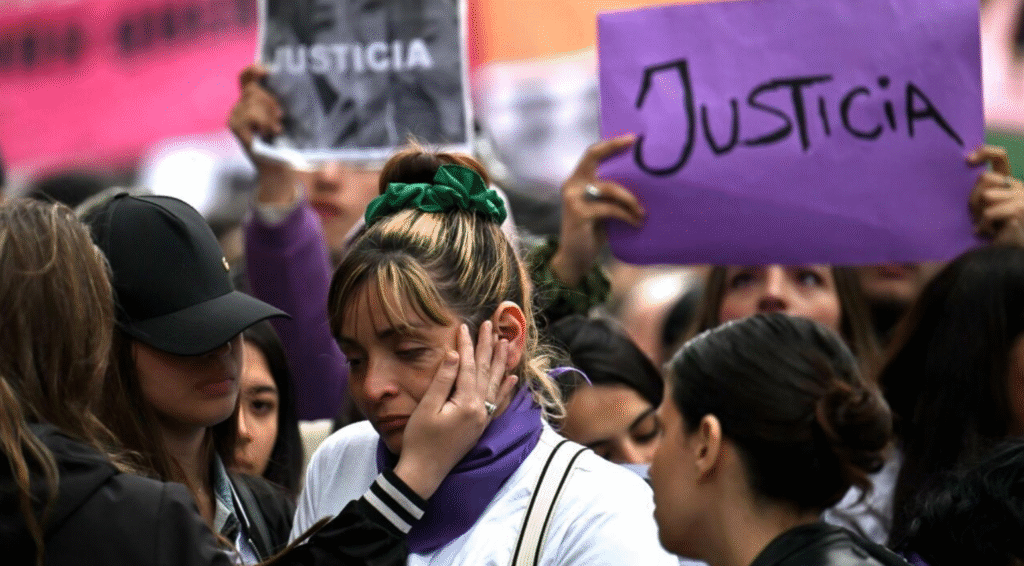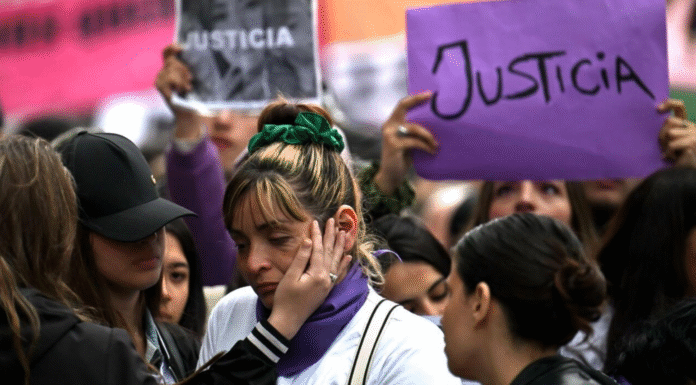Argentines Demand Justice After Brutal Femicide Crimes
The shocking murders of three young women have triggered a massive wave of protests as Argentines demand justice in the streets of Buenos Aires. Thousands marched toward Parliament, carrying banners and chanting for accountability after the gruesome killings of 15-year-old Lara Gutierrez, and cousins Morena Verdi and Brenda del Castillo, both just 20 years old.
This horrifying crime, which investigators believe was orchestrated by a drug-trafficking gang, has shaken Argentina to its core. The murders were not only brutal but were livestreamed on social media, turning the tragedy into a chilling public warning from the perpetrators.

The Case That Shocked Argentina
On September 19, the three victims were reportedly lured into a van under the false pretense of attending a party. Instead, investigators say it was a deadly trap designed to punish them for allegedly violating gang rules.
The killers tortured the young women before ending their lives, later burying their bodies in a suburban property south of Buenos Aires. The discovery came five days after the victims disappeared, sparking outrage and grief across the country.
Security officials revealed that under questioning, one of the detained suspects showed investigators a disturbing video of the incident. In the footage, a gang leader coldly declares: “This is what happens to those who steal drugs from me.”
Arrests and the Hunt for the Mastermind
As the nation grieves and Argentines demand justice, police have moved quickly. National Security Minister Patricia Bullrich confirmed that five suspects have been arrested, three men and two women.
However, the alleged mastermind remains at large. Authorities believe a 20-year-old Peruvian man leads the gang, and they have released his photo to the public, urging anyone who recognizes him to come forward.
This detail has only heightened tensions, as many Argentines worry about the power of organized crime and the safety of young women in vulnerable communities.
Families Speak Out: “Bloodthirsty Killers”
The families of Lara, Morena, and Brenda have been devastated. At the Buenos Aires protest, they joined thousands of marchers, demanding justice and stronger protections for women.
Brenda’s father, Leonel del Castillo, gave an emotional statement: “Women must be protected more than ever.” He revealed that his daughter’s body was so disfigured by abuse that he could not recognize her.
Her grandfather, Antonio del Castillo, broke down in tears, calling the killers “bloodthirsty.” He added: “You wouldn’t do what they did to them to an animal.”
The anguish of the families has resonated deeply with the public, reinforcing the urgency behind the protests.
Argentines Demand Justice: The Protest Movement
Rights groups, women’s organizations, and ordinary citizens joined forces under the banner: “There are no good or bad victims, only femicide.”
Marchers carried signs condemning gender-based violence and demanding accountability from authorities. The demonstration in Buenos Aires was both a tribute to the victims and a demand for systemic change in how Argentina addresses femicide.
One protester shouted: “This is not just about these three young women. This is about all of us. We are tired of living in fear.”
The Femicide Crisis in Argentina
The brutal killings of Lara, Morena, and Brenda are not isolated incidents. Femicide, the killing of women because of their gender, is a national crisis in Argentina.
According to a femicide monitoring group cited by Agence France-Presse, one woman is killed by a man every 36 hours in the country. This shocking statistic underscores the urgency of addressing violence against women on both legal and cultural levels.
Activists argue that while laws exist, enforcement remains weak. Many demand harsher punishments for perpetrators and better preventive measures, including more resources for at-risk communities.
Government Response and Public Pressure
The government has faced sharp criticism for failing to adequately protect women. Security Minister Javier Alonso acknowledged the systematic brutality of the crime, saying it was used as a warning by the gang.
Meanwhile, National Security Minister Patricia Bullrich has pledged that authorities will continue their hunt for the mastermind and ensure that justice is served. But for many Argentines, words are not enough.
As Argentines demand justice, public pressure is mounting on lawmakers to take stronger action against organized crime and gender-based violence.
Why Argentines Demand Justice Now
This case has become a tipping point. While femicides have been an ongoing issue, the livestreaming of such brutality has horrified even those accustomed to hearing grim news.
For protesters, the message is clear: these killings cannot be forgotten, and justice must not be delayed. Many are calling for reforms, improved law enforcement coordination, and stronger protections for women in dangerous situations.
The chant “Ni Una Menos” (Not One Less) echoed through Buenos Aires, symbolizing the collective demand to end femicide once and for all.

International Attention and Solidarity
The case has drawn global attention. Human rights organizations, including Amnesty International, have condemned the murders and called for urgent reforms in Argentina.
International media outlets have reported on the story, comparing Argentina’s femicide crisis to broader issues of gender-based violence across Latin America.
This international spotlight adds pressure on Argentine authorities to act swiftly and decisively.
Conclusion: A Nation at a Crossroads
The Argentines demand justice movement is not just about one crime but about systemic change. The horrific deaths of Lara, Morena, and Brenda have reignited a national conversation about femicide, organized crime, and government accountability.
While arrests have been made, the search for the mastermind continues. Families of the victims, and the thousands protesting alongside them, are determined not to let this case fade into silence.
As Argentina grieves, it also demands a future where young women can live without fear, where femicide is not a recurring headline, and where justice is more than just a promise.

